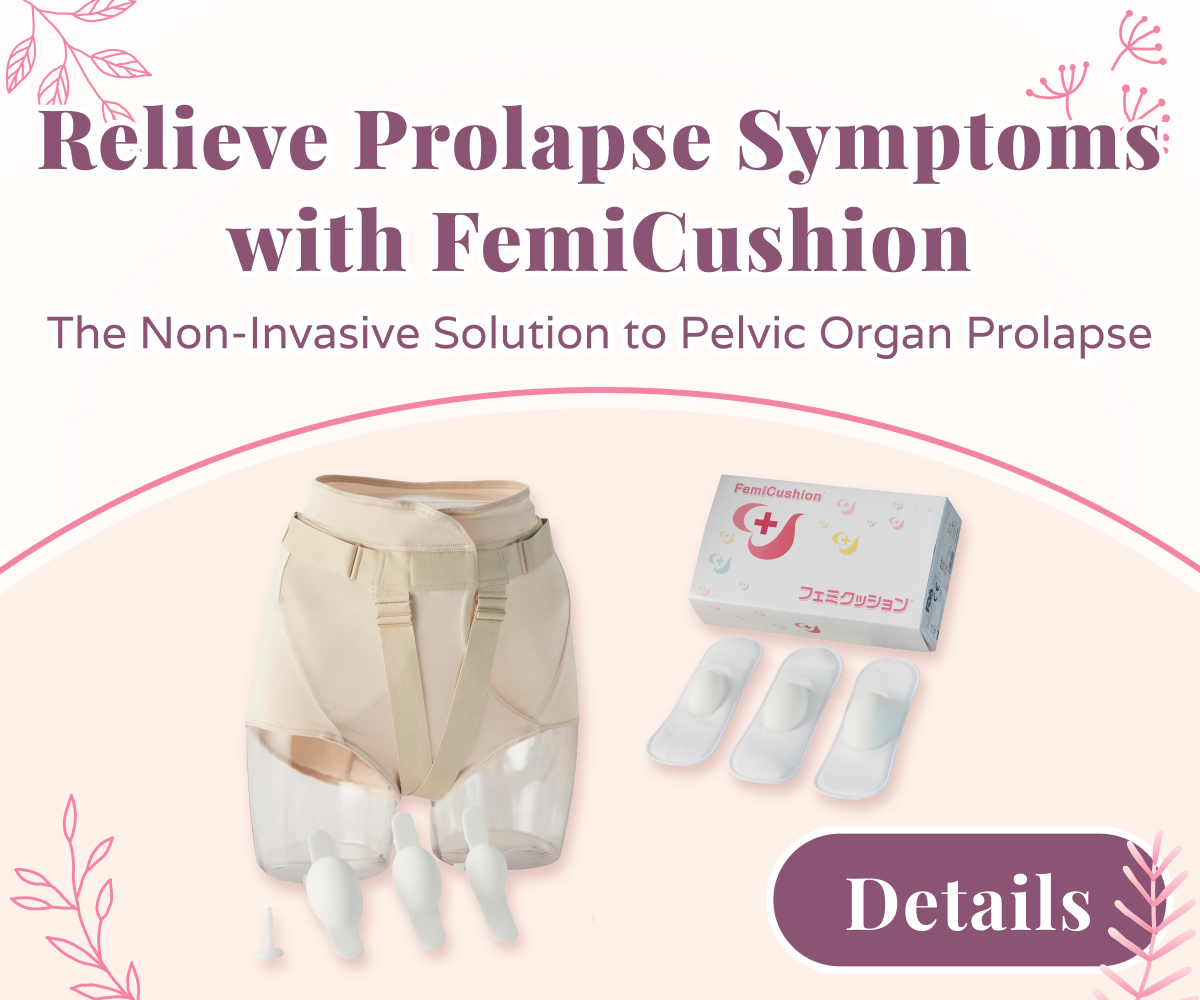Medical Studies
The Journal of Obstetrics and Gynecology Research
Showa University Northern Yokohama Hospital conducted a study on FemiCushion that was published in The Journal of Obstetrics and Gynecology Research using magnetic resonance imaging (MRI) to evaluate the atomic changes of pelvic organs using FemiCushion. Twelve patients with severe stages 3 or 4 of POP with a median age of 72 (age range 56-84) participated in the study. Results from the study shows that FemiCushion effectively repositioned the organs involved in POP.
Main points from the study:
- FemiCushion usage can achieve the same results as a pessary without the risks associated with pessary use, such as vaginal erosion and bleeding
- FemiCushion not only directly elevates prolapsed organs but also supports the perineal body in an upward direction and closes the hiatuses.
- Patients with severe POP demonstrated a significant reduction in the amount of prolapse following FC application
- FemiCushion use for as little as a month might lead to improvement of POP
For more information about this study, read the full article.
The Pelviperineology Journal
An independent study on FemiCushion conducted by the Urology Department at the University of Campinas in São Paulo, Brazil, and published in the Pelviperineology journal showed effective results in women aged 60 to 79 who used the prolapse support device three months in a row.
Excerpt: "FemiCushion presents lower risk of complications when compared to pessaries, due to the fact that it is not placed inside the vagina and it is removed daily for hygiene, reducing the risk of infections and negligence."
Symptoms that showed the greatest improvements were:
- Pain or discomfort in the lower abdomen
- Feeling a lump or bulge in the pelvic area
- A visual lump or bulge outside the vagina
The study found that FemiCushion is an effective option for improving quality of life and managing symptoms caused by pelvic organ prolapse. For more information about this study, read the full article.
The Sexual Medicine Society of North America (SMSNA)
An independent study was presented during the 18th Annual Fall Scientific meeting held in October 2017 by the Sexual Medicine Society of North America that tested a new method of dermal tissue transplantation for treatment of pelvic organ prolapse. The study used FemiCushion after surgery to help with recovery and improve patient quality of life.
Excerpt: "The patient was discharged on the fifth day after surgery and used an external pessary (FemiCushion) for 2 months postoperatively, until the graft was firmly engrafted. This external pessary supports the pelvic floor muscle and can be used before surgery after removing a vaginal pessary, thereby improving patient quality of life. Patients can also use the external pessary if they develop sexual dysfunction while using a vaginal pessary."
For more information about this study, visit the Sexual Medicine Society of North America.


